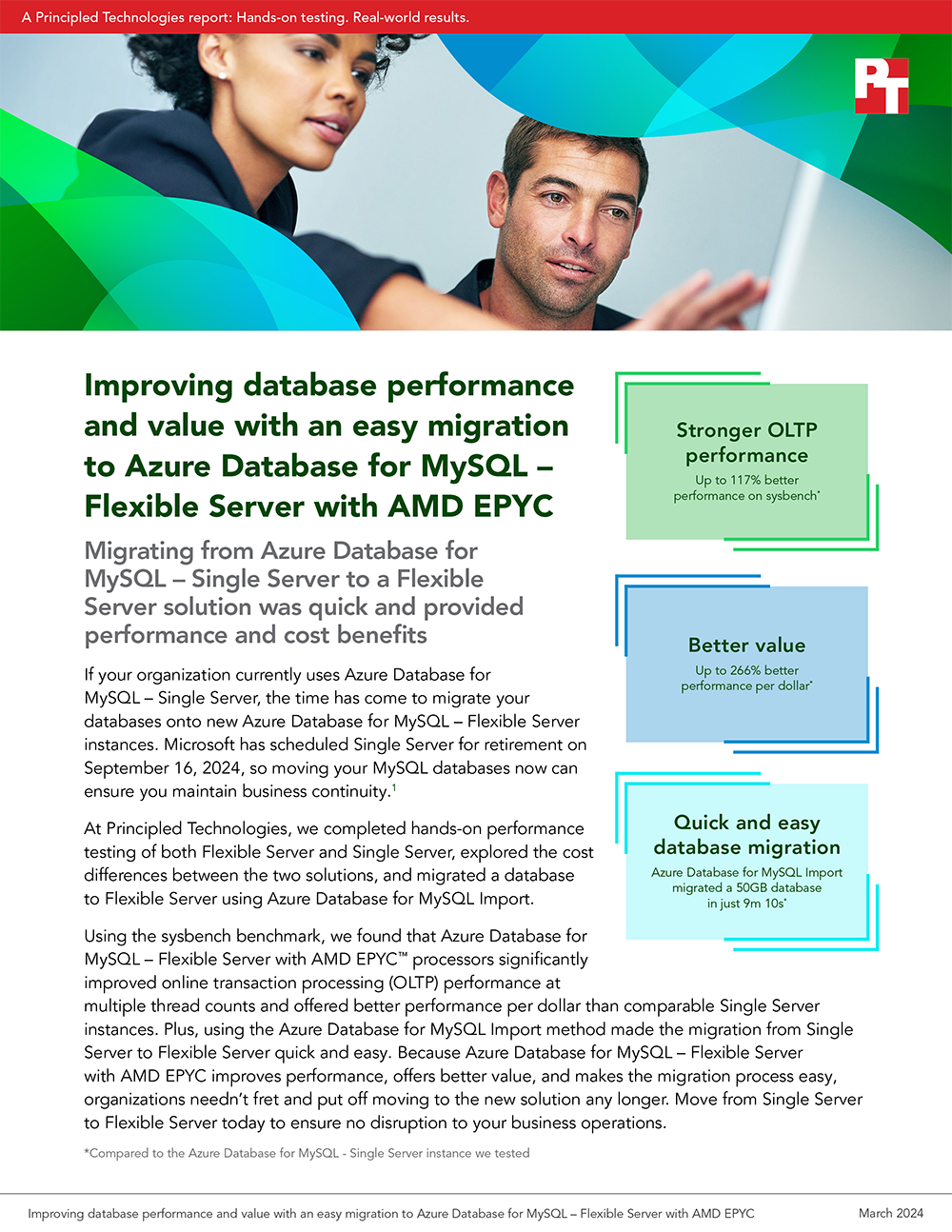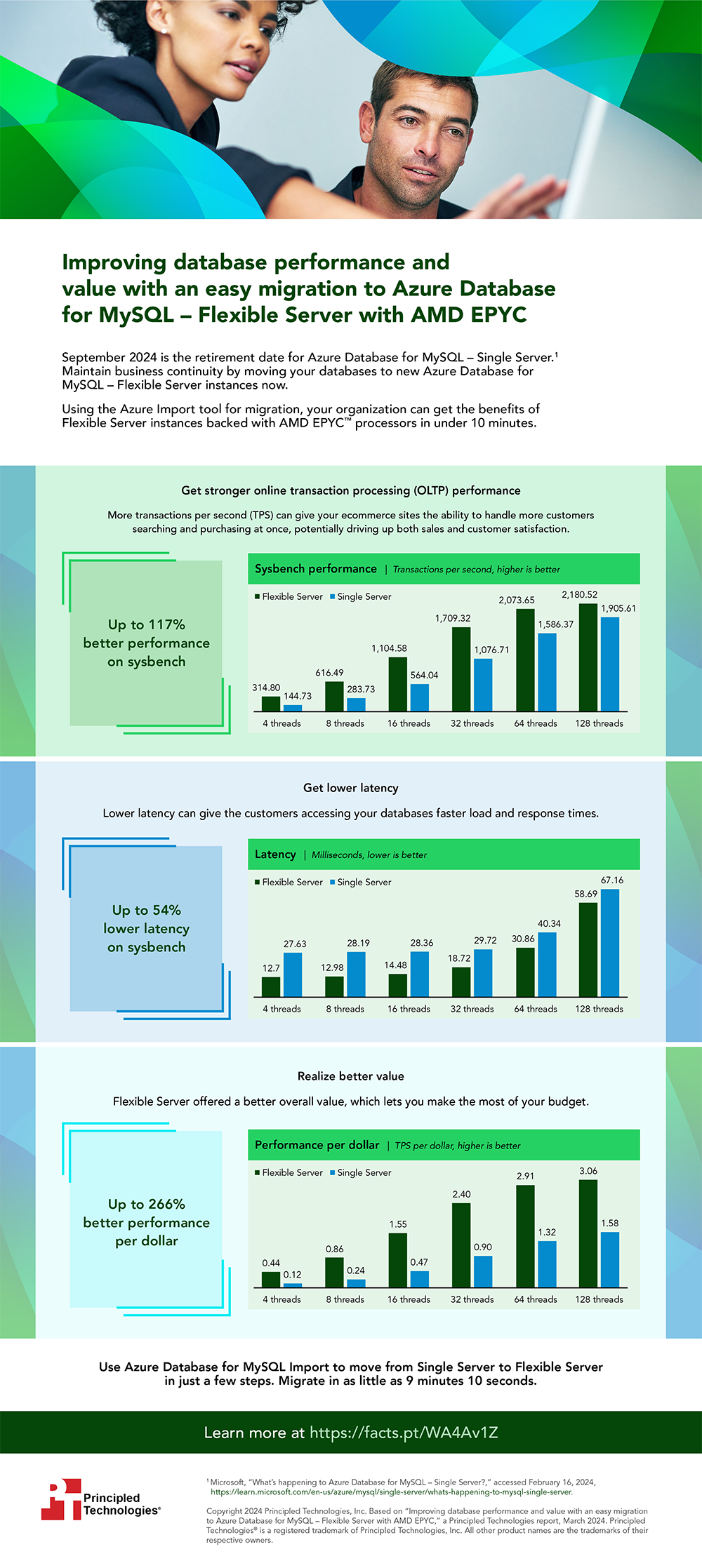
For the thousands of businesses that use MySQL databases to support services ranging from weather forecasts to e-commerce to streaming services and more, reliable database performance is an indispensable ingredient for success. In database-powered environments where managers prize consistency and predictability, the idea of migrating to a new database solution can cause anxiety and present significant practical challenges. Organizations that currently use Azure Database for MySQL – Single Server are facing the prospect of having to migrate before September 16, 2024, when support for Single Server ends. The good news for Single Server clients is that migrating to Azure Database for MySQL – Flexible Server with AMD EPYC processors can be a quick and easy process that results in better database performance per dollar.
We tested those claims by using the industry-standard sysbench benchmark to evaluate the database performance of Single Server and Flexible Server solutions. We looked at cost differences between the two options, and we migrated a database to Flexible Server using the Azure Database for MySQL Import tool. We found that the Flexible Server solution with EPYC processors significantly boosted online transaction processing performance at multiple thread counts, while offering greater performance per dollar than comparable Single Server instances. In addition, using the Azure Database for MySQL Import technique made the transition from Single Server to Flexible Server quick and easy.
Because upgrading to Azure Database for MySQL – Flexible Server is a straightforward operation that can increase database performance and provide cost benefits, companies don’t need to be anxious about the choice or the process. Migrating as soon as possible could move potential budgetary benefits from the future to the present and speed up the timeline for providing better service to their users.
For more details about our Azure Database for MySQL comparison tests, check out the report and infographic below.
Principled Technologies is more than a name: Those two words power all we do. Our principles are our north star, determining the way we work with you, treat our staff, and run our business. And in every area, technologies drive our business, inspire us to innovate, and remind us that new approaches are always possible.







